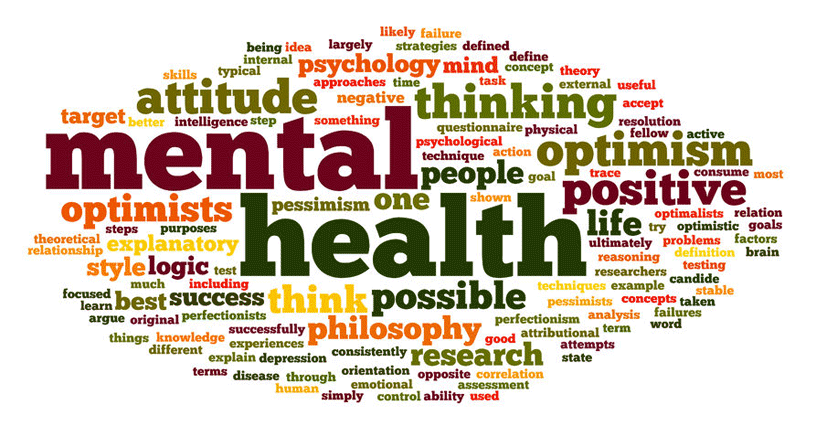Comprehensive Inpatient Mental Health And Wellness Providers for Effective Treatment
Inpatient mental health and wellness services represent an important element of the health care system, supplying a intensive and organized environment for individuals experiencing extreme emotional distress. Discovering the subtleties of this continuum exposes significant implications for both individual recovery and more comprehensive psychological health and wellness results.
Comprehending Inpatient Mental Wellness Services
Inpatient mental wellness services supply essential assistance for individuals experiencing severe emotional distress that can not be taken care of successfully in an outpatient setting. These services are developed to use an intensive degree of treatment in a structured setting, usually within a hospital or specialized facility. People admitted to inpatient programs typically present severe symptoms, such as self-destructive ideation, severe depression, or psychosis, demanding day-and-night monitoring and treatment.
The admission procedure normally involves a thorough analysis by mental wellness experts, that examine the person's mental state, history, and prompt needs. When admitted, people engage in a selection of restorative methods tailored to their details demands, consisting of medicine monitoring, individual therapy, and team sessions. This holistic strategy aims to maintain the patient's condition, advertise safety, and foster coping skills.
Inpatient psychological wellness services not only address instant health concerns however likewise function as a bridge to ongoing care. By giving a controlled atmosphere, these solutions promote the development of treatment plans that can be proceeded in outpatient setups, therefore ensuring a continuum of care and enhancing long-lasting end results for people with complex psychological health and wellness needs.
Secret Parts of Effective Therapy
Reliable therapy in inpatient psychological wellness solutions consists of numerous crucial components that foster recovery and stabilization. Primarily, a detailed analysis is necessary to determine the person's certain requirements and difficulties. This assessment informs the development of a customized therapy strategy, which works as a roadmap for intervention.
One more vital part is the multidisciplinary team strategy. Collaboration among psychiatrists, psycho therapists, nurses, and social workers ensures that numerous viewpoints add to the patient's treatment, boosting the effectiveness of treatment. Evidence-based therapeutic methods, such as cognitive-behavioral treatment (CBT) and dialectical behavior modification (DBT), are also integral, providing organized methods that resolve maladaptive idea patterns and behavioral problems.

Finally, a concentrate on aftercare preparation is important to guarantee a seamless change to outpatient services, minimizing the threat of relapse and promoting lasting wellness. These collective parts produce an effective therapy framework within inpatient psychological health and wellness services.
Advantages of Comprehensive Care

Thorough care in inpatient mental health and wellness solutions offers various advantages that significantly improve patient results. Among the key advantages is the holistic technique to therapy, addressing not only the mental signs yet also the physical, social, and emotional requirements of individuals. This thorough assessment permits tailored treatments that advertise general health.
Another advantage is the integration of multidisciplinary teams, which fosters next page collaboration among health care experts. This collective setting ensures that patients receive coordinated care, reducing the risk of fragmented treatment and enhancing interaction among caregivers. Extensive care facilitates connection of services, enabling for seamless changes from inpatient to outpatient settings, which is essential for long-term recuperation.

Lastly, the organized environment of comprehensive inpatient care offers a risk-free space for clients to participate in restorative tasks, assisting them develop dealing approaches and strength. Jointly, these benefits contribute to more effective therapy and boosted lifestyle for individuals experiencing mental wellness dilemmas.
Evidence-Based Restorative Methods
In the world of psychological health and wellness treatment, evidence-based healing strategies play a critical function in making sure that individuals get effective and medically sustained interventions. These strategies incorporate the most effective available study with medical competence and client values, fostering a customized treatment experience that resolves private needs.
Cognitive Behavior Modification (CBT) is one of one of the most widely acknowledged evidence-based approaches, focusing on determining and transforming negative thought patterns and habits. This organized technique has demonstrated effectiveness in dealing with problems such as clinical depression, ptsd, and anxiety. Dialectical Actions Treatment (DBT) is specifically effective for individuals with borderline character condition, highlighting the growth of emotional policy and interpersonal efficiency skills.
In addition, medicine management is often an important element of evidence-based therapy, as psychotropic medicines can alleviate signs and symptoms and boost overall functioning. Collaborative treatment designs, which include multidisciplinary groups, even more boost the efficacy of inpatient solutions by making certain extensive analyses and constant monitoring.
Inevitably, the assimilation of evidence-based restorative techniques not just advertises favorable clinical outcomes however also encourages clients, cultivating a feeling of agency and strength in their psychological health journeys.
Transitioning to Outpatient Support
The shift from inpatient psychological health solutions to outpatient support marks an essential phase in a client's recuperation journey. This period needs mindful planning and control to make sure continuity of treatment and to alleviate the dangers of regression or situation. Efficient discharge planning ought to commence early in the inpatient remain, involving a multidisciplinary group article source that includes psychoanalysts, psycho therapists, registered nurses, and social workers.
Trick aspects of an effective shift include the growth of an extensive aftercare strategy tailored to the person's specific requirements. This strategy ought to lay out follow-up appointments, medicine management, and healing interventions, along with identify area resources and support system that can help with recurring recovery.
Additionally, patient and household education is crucial throughout this stage. Understanding the indications of possible setbacks and the significance of sticking to therapy can encourage patients and their support systems.
Regular follow-up and reassessment of the outpatient plan are necessary to address developing difficulties. By promoting a joint partnership in between inpatient and outpatient suppliers, the chance of sustained recovery increases, ultimately enhancing the client's lifestyle and minimizing the danger of readmission.

Conclusion
In recap, comprehensive inpatient mental health services supply an important structure for addressing severe mental distress via a multidisciplinary approach. By integrating evidence-based therapies, fostering an organized atmosphere, and promoting household involvement, these solutions improve treatment effectiveness. The focus on stability and the look what i found advancement of coping skills not just aids in prompt recovery however additionally helps with a smoother transition to outpatient treatment. Ultimately, such extensive care is vital for lasting psychological wellness and wellness.
The admission procedure generally involves a detailed assessment by psychological health experts, who examine the individual's mental state, history, and instant requirements.Effective treatment in inpatient mental wellness solutions consists of a number of essential elements that foster recovery and stabilization.Thorough treatment in inpatient mental health and wellness solutions supplies numerous benefits that significantly boost individual outcomes.The change from inpatient psychological health solutions to outpatient assistance marks a critical stage in a person's recuperation journey.In summary, comprehensive inpatient mental health and wellness solutions offer an essential structure for dealing with extreme psychological distress with a multidisciplinary approach.